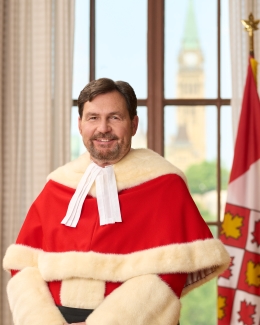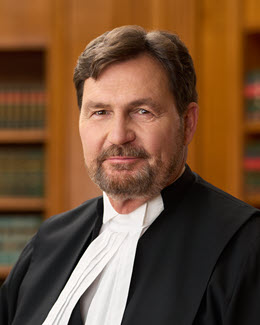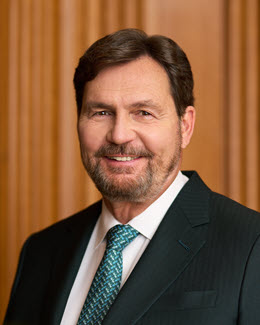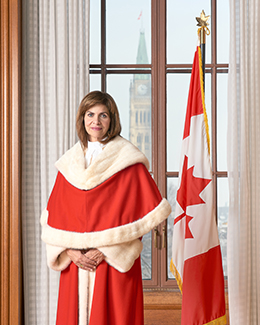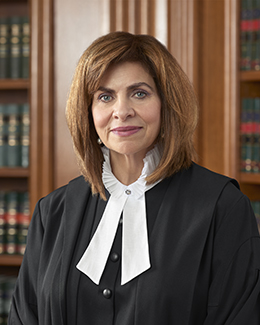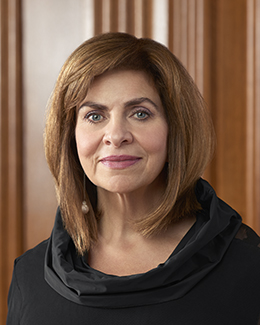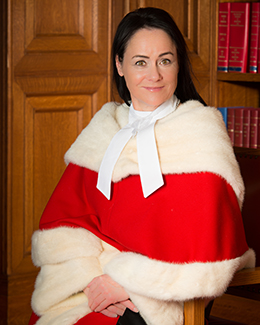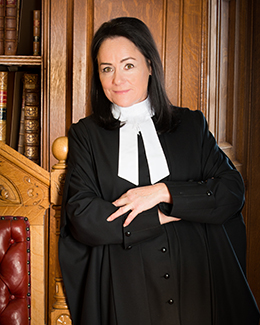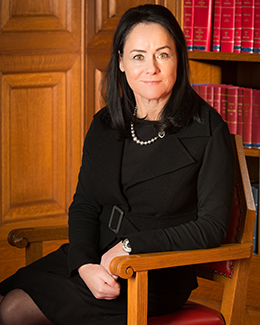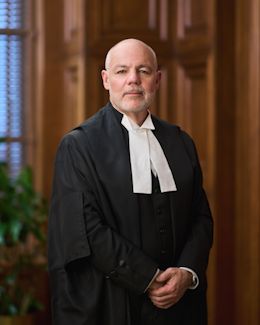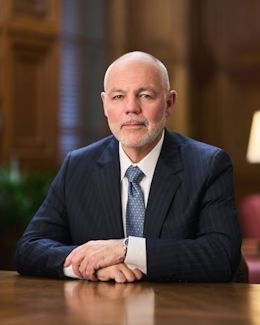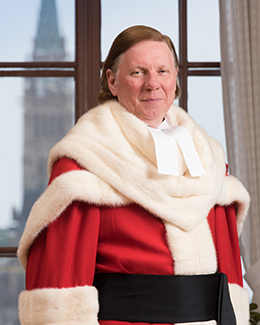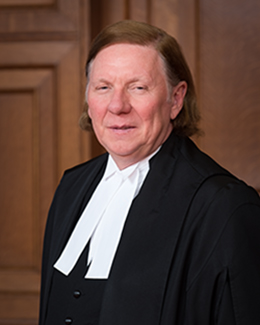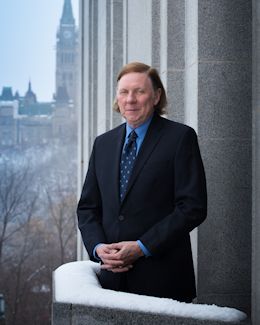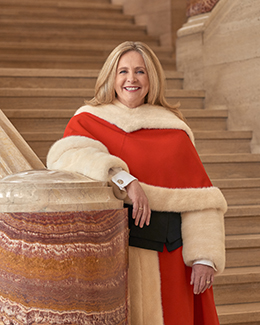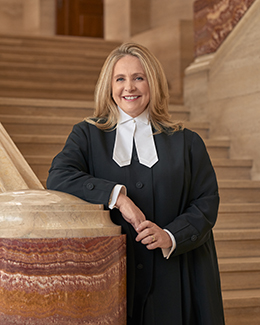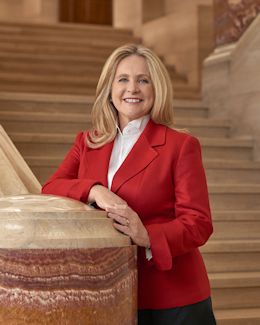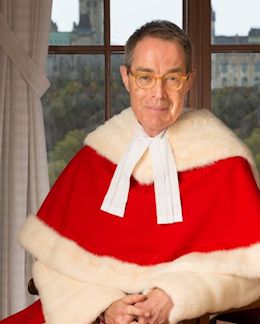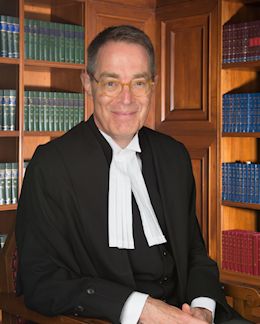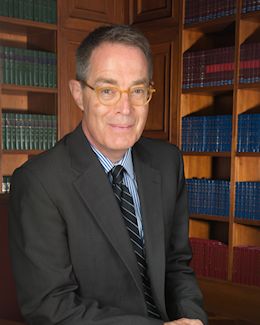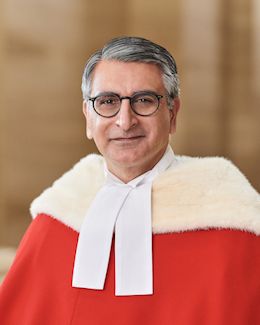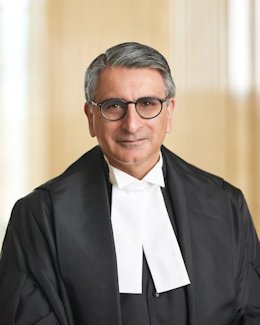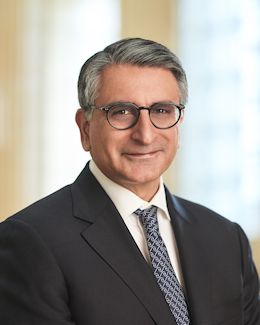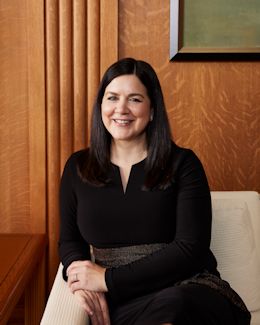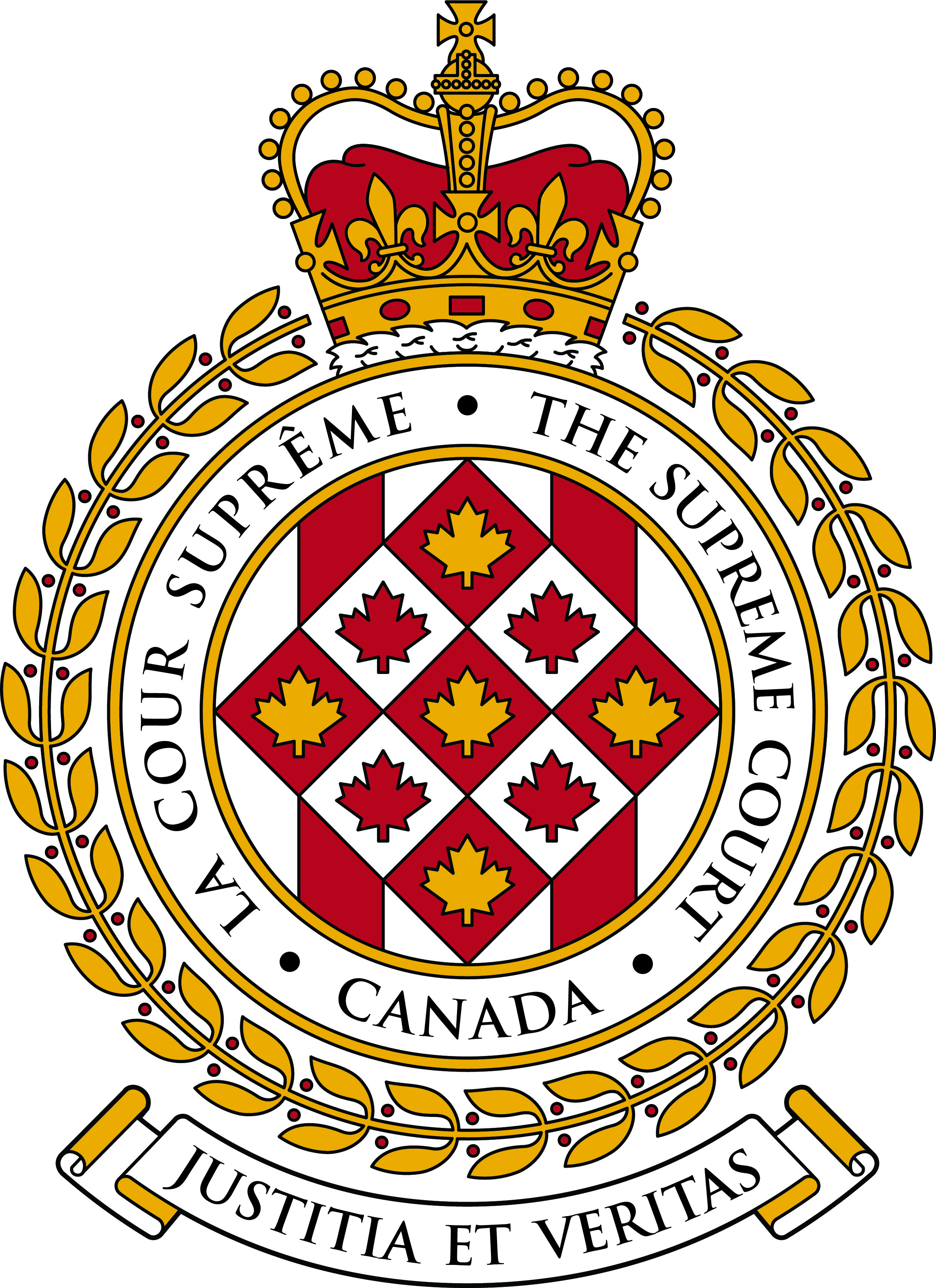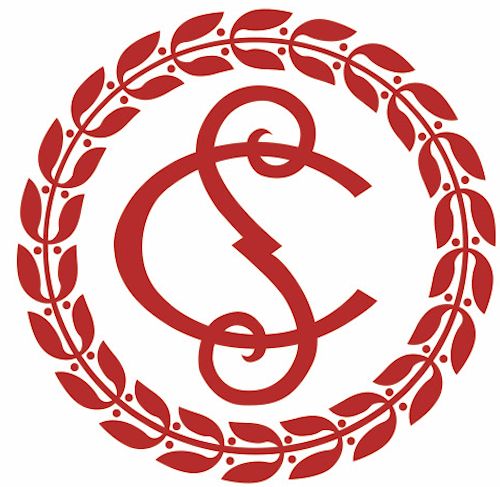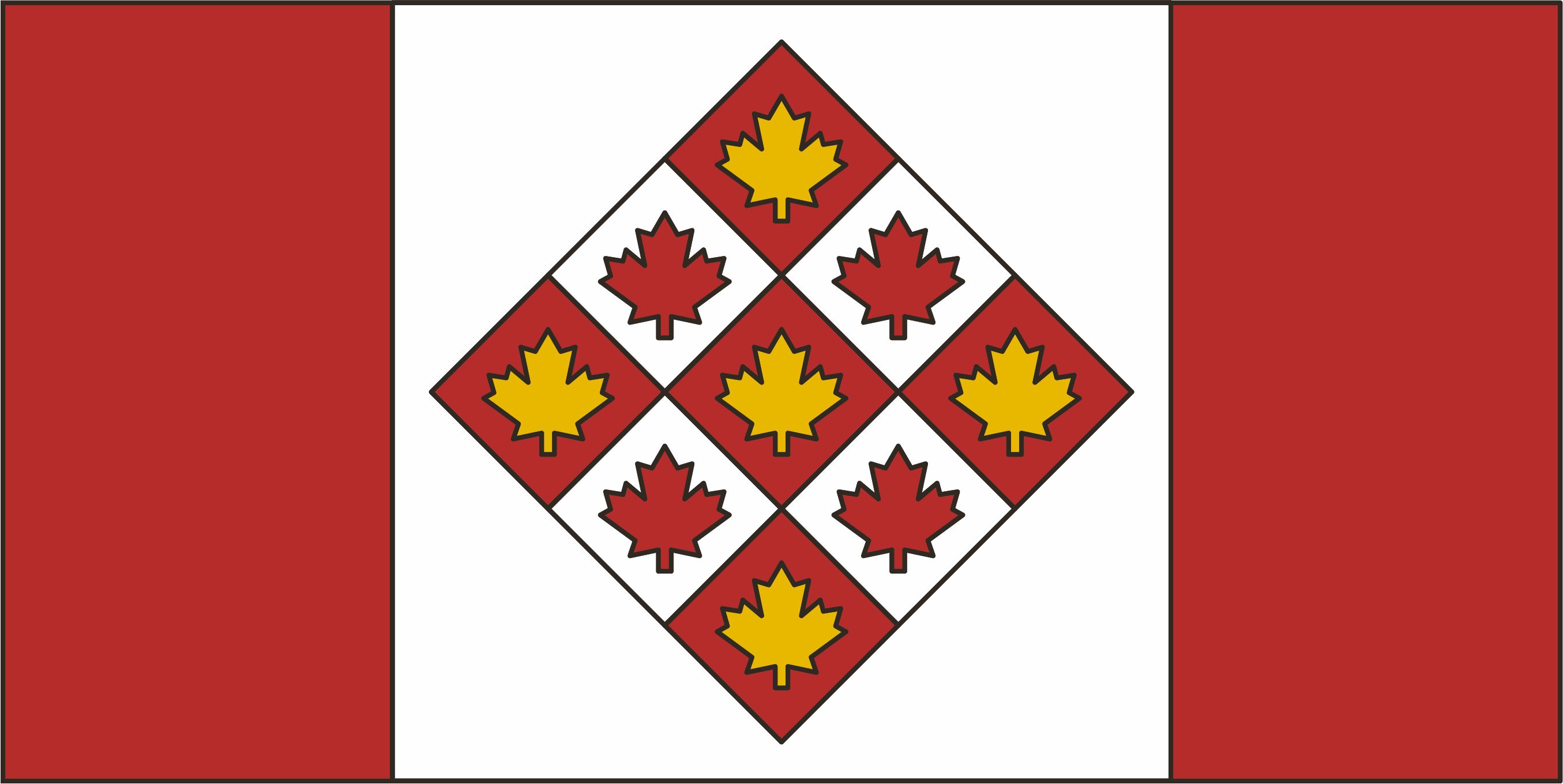News Releases
Ottawa, September 7, 2022 – The Supreme Court of Canada will be in Quebec City from September 12-16, 2022.
Members of the Court will hear two cases at the Palais de justice, meet local students, host a free public event and engage with the local legal community. Members of the media who plan to cover the visit should consult the schedule and details below:
Monday September 12
10-10:30 a.m. – Media Availability
Chief Justice Richard Wagner will make brief remarks and answer questions from reporters.
Palais de justice, Room 4.01, 300 Jean-Lesage Blvd., Québec, QC
Afternoon – Visits to local high schools, closed to media.
Wednesday September 14
9:30 a.m. – Hearing of His Majesty the King v. Pascal Breault, open to media.
Chief Justice Wagner will make brief remarks about the importance of courts being accessible to Canadians before the hearing officially begins. For more information about the case being heard, please consult the Case Pre-Brief. Please be advised that the hearing will be streamed live on the Supreme Court website as well as www.cpac.ca
Palais de justice, Room 4.01, 300 Jean-Lesage Blvd., Québec, QC
3 p.m. – Public event at the Museum of Civilization, open to media.
After short remarks from Quebec Chief Justice Manon Savard and Canada’s Chief Justice Richard Wagner, moderator Isabelle Richer will facilitate a public question and answer period with all nine judges.
Musée de la civilisation, Roland-Arpin auditorium, 85 Rue Dalhousie, Québec, QC
Please be advised judges will not be available for any interviews.
Thursday September 15
9:30 a.m. – Hearing of Janick Murray-Hall v. Attorney General of Quebec, open to media.
For more information about the case being heard, please consult the Case Pre-Brief. Please be advised that the hearing will be streamed live on the Supreme Court website as well as www.cpac.ca
Palais de justice, Room 4.01, 300 Jean-Lesage Blvd., Québec, QC
Friday September 16
8 a.m. – Round table discussions with Université Laval faculty and students, closed to media.
Notes for the media
- Official photos of judges and many other resources can be found on the Quebec City Visit microsite.
- Upon arrival at the courthouse, present your news outlet ID card at the media sign-in table.
- Seats are being reserved for reporters in the courtroom but space is limited. There will also be an overflow room for members of the public and media.
- Once the hearings are officially underway, no cameras will be permitted in the courtroom.
For further information, please contact:
Renée Thériault
Executive Legal Officer
Phone : 613-996-9296
Renee.Theriault@scc-csc.ca
Alison Crawford
Senior Strategic Communications Advisor
Phone : 343-996-1247
Alison.Crawford@scc-csc.ca
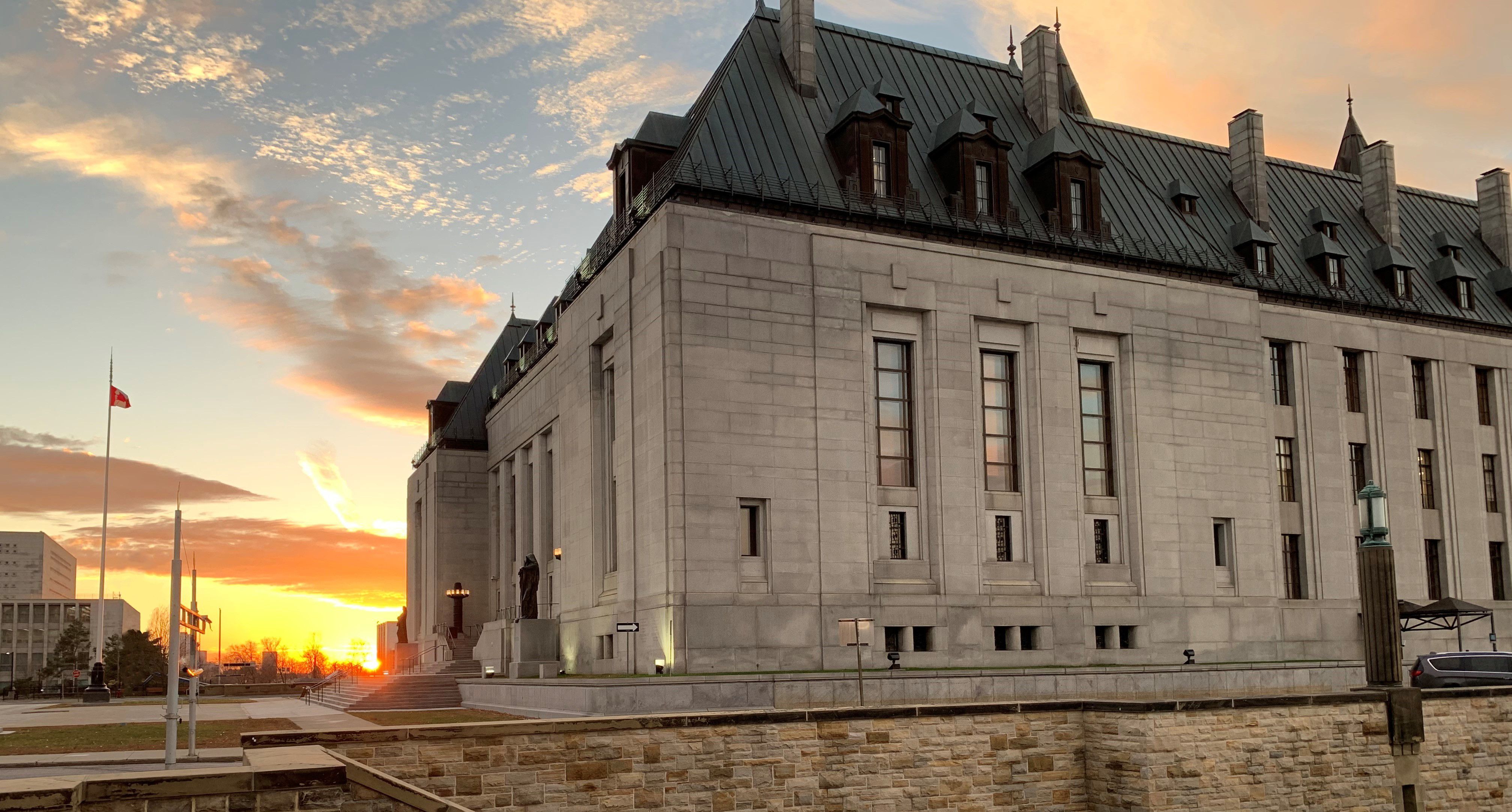
Speeches and Remarks
Words of Welcome from the Right Honourable Richard Wagner, P.C.
Chief Justice of Canada
Good afternoon everyone. I am happy to see so many of you here today at the Musée de la civilisation. Residents of Quebec City and the region are fortunate to have easy access to this world-class institution. The museum likes to say, ‘Notre musée, c’est la maison du monde’. What a wonderful way of communicating the spirit and excellence of this place! I would like to express my thanks to the Museum and its employees for hosting us here today. And everyone in the audience today – I would like to thank you for your interest in the Supreme Court of Canada. My colleagues and I look forward to these opportunities, outside the courtroom, to demystify the work of the Court.
I am so pleased that all nine of us are here together to speak to you, about what we do and how we do it. We all have different backgrounds, lived experiences and come from different parts of the country. Yet each one of us is passionate about the principles of open courts and access to justice. They inspire initiatives such as this one.
Let me introduce everyone to you. And I think it would fitting to start with the newest member of the Court, Madame Justice Michelle O'Bonsawin. Today was her first Supreme Court hearing! Next, we have Justices Mahmud Jamal, Nicholas Kasirer, Sheilah L. Martin, Malcolm Rowe, Russell Brown, Suzanne Côté and Andromache Karakatsanis. Together, our role is to decide the country’s complex and significant legal questions that are of importance to people right across the country.
Tomorrow for instance, the Court will hear the case of Janick Murray-Hall v. Attorney General of Québec. At issue is a Québec ban on owning and growing cannabis plants for personal use. So, you might ask yourself, ‘why would this interest anyone outside Quebec?’ That is a great question! It’s because the case raises constitutional questions about the compatibility of federal and provincial cannabis laws. And that is why many other provinces will participate in tomorrow’s hearing.
As the final court of appeal in Canada, the Supreme Court has jurisdiction to hear disputes in all areas of the law. Our mandate is to decide and provide guidance on some of Canada’s most challenging legal issues. Ones that are often of national interest to a great number of people. The Supreme Court is the ultimate guardian of our Constitution and it ensures the protection of Canadians’ rights and freedoms, as guaranteed under the Charter. To sum it up - the Court resolves some of the country’s biggest arguments, it helps develop Canadian law, and ensures laws are applied clearly and fairly across the country.
The Supreme Court is the only bilingual and bijural high court in the world. We hear and decide cases in French and English, and deal with cases from Canada’s two major legal traditions – the French Civil Code and British Common Law. The Court usually hears between 60 and 70 appeals per year. They come from provincial and territorial appeal courts, the Federal Court of Appeal, as well as the Court Martial Appeal Court of Canada.
We also decide references questions, which come from federal, provincial or territorial governments. That’s when they ask the Court for its opinion on an existing or proposed law. In recent memory, these have included questions about same-sex marriage, extraditing Canadians to countries with the death penalty and the federal government’s carbon pricing regime.
A moment ago, I mentioned the principle of access to justice, which at its most basic meaning, means everyone who has a legal problem should be able to resolve it in a fair and timely manner. Barriers to accessing justice include not being able to afford legal services, court delays, or not being able to understand legal forms and rules. Just for a moment, imagine how many legal problems could be resolved if everyone understood their rights and freedoms, as well as our laws and justice system. Access to justice is about equality, which is the foundation of our democracy. That foundation grows stronger when people have better access and understanding of our courts, because that builds confidence in the justice system. Justice is more than a service – it’s a basic need!
While the Supreme Court does not hold trials with evidence and witnesses, we are doing what we can to help people understand the work we do. Supreme Court staff now produce a one-page plain language summary of every decision we make, to help people understand the history, context and reasons for our judgments. I admit, it is not always easy to understand a 100-page judgment full of legal jargon, references and citations!
The Court also produces and annual report that shares information, statistics and photographs about our work and activities. It is called the Year in Review and you may find it on our website or, if you prefer a hard copy, you may pick one up on your way out this afternoon.
In addition to the open court principle and access to justice, Members of the Supreme Court – indeed ALL judges – are devoted to the principle of judicial independence. It is fundamental to upholding Canada’s stable democracy, the rule of law and robust protections for our collective rights and freedoms. Being independent of the legislative and executive branches of government means that unlike politicians, judges have the freedom to make decisions that are not always popular. Rather, we make decisions based on what is right, in the context of our legal traditions and rule of law.
That independence actually starts before a judge is appointed. It is worth mentioning that the process for selecting judicial candidates has never been as independent as it is now.
The public can have confidence in the impartiality and independence of the Supreme Court, and of all the courts in Quebec and Canada. It can be easy to forget that judicial independence exists not for the benefit of the judges, but for the citizens who can be certain they will get a fair hearing. The Supreme Court is always here for you. Thank you for taking the time to be here. We are all ready to answer your questions.
Supreme Court of Canada Visit to Quebec City
Public Meeting
Musée de la civilisation
85 Dalhousie St.
Quebec City, Québec
Other formats/languages available:
- Video (French version | Original version)
- Audio (English version | French version | Original version)
Remarks by the Right Honourable Richard Wagner, P.C.
Chief Justice of Canada
Good morning and welcome to the Supreme Court of Canada, which is sitting in Quebec City this week for the first time in its history. We’re very happy to be here today.
This is only the second time the Court has travelled outside of Ottawa to hear cases elsewhere in the country. The first time was in Winnipeg in 2019. The judges and Court employees are delighted to be in the most beautiful heritage city in North America. We are all touched by the warm welcome from your community.
Hearing cases outside of Ottawa is an initiative inspired by the principles of access to justice and an open court. The visit of the Supreme Court of Canada to Quebec City is an opportunity for the Court to make its work, activities and role in Canadian democracy known to a wider audience.
So far this week, all nine of us judges have traveled across the region to speak with high school students. I have to tell you, they asked us some very good questions. The Court will meet many more people throughout the week, ending on Friday with law students at Université Laval.
I hope to see some of you this afternoon at the Musée de la civilisation, where the Court will host a free public event and take questions from the public.
The Supreme Court is Canada’s final court of appeal. It decides some of the country’s most important and complex legal questions. In so doing, the Court clarifies the law for all Canadians, ensuring that it is applied equally and fairly across the country. That is why it is important people understand how and why the Court makes its decisions. After all, it’s hard to trust something you don’t understand.
That is why the Supreme Court makes opportunities to show people what we do and how we do it. And just as you are all here today – you are free to attend hearings anywhere else in Québec. All of Canada’s courts are open, impartial and independent. That makes us something of a democratic superpower!
I would like to mention one last thing before we begin today’s hearing. On behalf of myself and my colleagues, I would like to express our most sincere and heartfelt thanks to the Chief Justice of Quebec, Madame Manon Savard, as well as to the Associate Chief Justice of the Superior Court of Quebec, Madame Catherine La Rosa, and the Chief Justice of the Court of Quebec, Madam Lucie Rondeau. The hearings and our activities this week have been made possible by their enthusiastic and invaluable support.
Many of you may have already remarked that the name of today’s case has been altered to reflect that Canada has a new Head of State. Where this case was initially filed as Her Majesty the Queen versus Pascal Breault, it is now His Majesty the King. In practice, that is the only change that will occur at the Court due to the death of Queen Elizabeth II.
On a personal note, the passing of Queen Elizabeth II has caused me to reflect on my six months as Administrator of Canada in 2021, when the previous Governor General left office. The experience gave me a greater appreciation of the strength and health of our democratic institutions. I hope that attending today’s hearing does the same for you.
Now let’s get started.
Remarks by the Right Honourable Richard Wagner, P.C.
Chief Justice of Canada
Good morning everyone. Thank you for joining me today and for your interest in the Supreme Court of Canada. I am delighted to be in Quebec City this week where the Court will – for the second time in its history – hear cases outside of Ottawa.
Hearing cases outside of Ottawa is an initiative inspired by the principles of access to justice and an open court. The visit of the Supreme Court of Canada to Quebec City is an opportunity for the Court to make its work, activities and role in Canadian democracy known to a wider audience.
Since my appointment as Chief Justice, I have made it a priority to make the Supreme Court of Canada the most open and accessible top court in the world. This is why I recently held my fifth Annual News Conference in Ottawa. Several other initiatives also support this priority. For example, the Court now publishes a detailed annual report – called the Year in Review – outlining its work and activities. Court employees also prepare Cases in Brief which are written in accessible language. These short summaries of Court judgements explain the history of the case and the reasons for the decision.
The Court recently increased its online presence with an Instagram account. We share photos and information, often about activities outside of the courtroom, including my recent trip to Senegal where I concluded my three-year term as president of the Association des cours constitutionnelles francophones.
These types of initiatives strengthen public confidence in Canadian courts as open, independent and impartial institutions. This week, the people of Quebec City have a unique opportunity to see the Supreme Court in action firsthand. The Court’s justices will travel to high schools in the area to meet with students and answer questions. On Wednesday afternoon, the Court will host a free public event at the Musée de la civilisation. This is another opportunity for people to ask the judges questions about their work and about Canada’s final court of appeal.
Two hearings are scheduled for Wednesday and Thursday morning. You can find all of the relevant information about the cases on our dedicated microsite. Finally, on Friday, the judges will exchange with law students and faculty from the Université Laval.
I look forward to welcoming you to the hearings and to the public event. I am very appreciative of the important role played by the media in our free and democratic society, particularly as it relates to providing people with accurate and reliable information on legal matters, trials and hearings.
I am ready to take your questions.
News Conference with Media in Quebec City
Marc-André-Bédard Building
Palais de justice
300 Blvd. Jean-Lesage, Quebec City
Room 4.01w
Visual Assets
The judges’ round table discussions with Université Laval concludes the Court’s visit to Quebec City.
(Click on the photos to open them in a different window.)
On Thursday, the Supreme Court judges heard their second case during their visit to Quebec City.
(Click on the photos to open them in a different window.)
On Wednesday, the nine judges of the Supreme Court of Canada heard the first of two hearings while they sit in Quebec City. They also met with the public at the Musée de la civilisation.
(Click on the photos to open them in a different window.)
The Chief Justice answered questions from journalists about the Court’s visit to Quebec City. All nine judges, accompanied by judges of the Appeal Court of Quebec, the Superior Court of Quebec and the Court of Quebec then met with students from high schools across the city, followed by a reception hosted by Quebec City Mayor Bruno Marchand. Here are some photos!
(Click on the photos to open them in a different window.)



































